- News
- Reviews
- Bikes
- Accessories
- Accessories - misc
- Computer mounts
- Bags
- Bar ends
- Bike bags & cases
- Bottle cages
- Bottles
- Cameras
- Car racks
- Child seats
- Computers
- Glasses
- GPS units
- Helmets
- Lights - front
- Lights - rear
- Lights - sets
- Locks
- Mirrors
- Mudguards
- Racks
- Pumps & CO2 inflators
- Puncture kits
- Reflectives
- Smart watches
- Stands and racks
- Trailers
- Clothing
- Components
- Bar tape & grips
- Bottom brackets
- Brake & gear cables
- Brake & STI levers
- Brake pads & spares
- Brakes
- Cassettes & freewheels
- Chains
- Chainsets & chainrings
- Derailleurs - front
- Derailleurs - rear
- Forks
- Gear levers & shifters
- Groupsets
- Handlebars & extensions
- Headsets
- Hubs
- Inner tubes
- Pedals
- Quick releases & skewers
- Saddles
- Seatposts
- Stems
- Wheels
- Tyres
- Health, fitness and nutrition
- Tools and workshop
- Miscellaneous
- Buyers Guides
- Features
- Forum
- Recommends
- Podcast
news
Live blog
Tour de France boss says cycling budget cap would help tackle “unbalanced investment from Arab countries” – and admits he “wasn’t a fan of the Sky era” + more on the live blog
SUMMARY
 2023 TdF directors car peloton A.S.O._Charly_Lopez
2023 TdF directors car peloton A.S.O._Charly_Lopez09:30
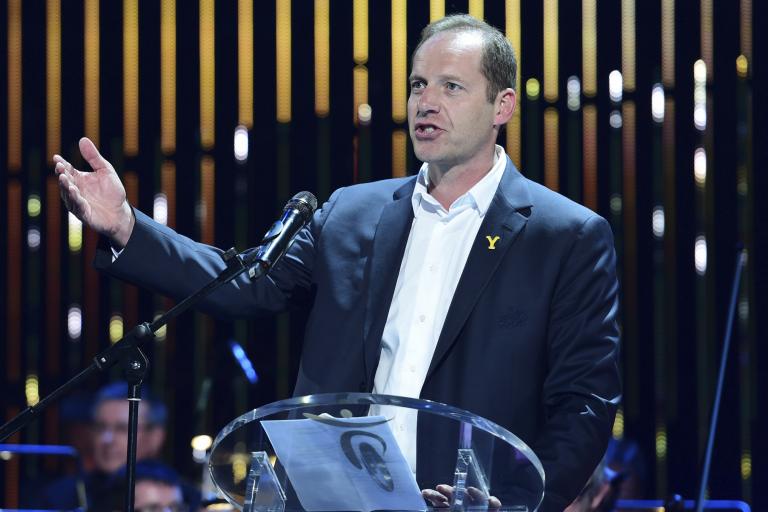
Tour de France boss says cycling budget cap would help tackle “unbalanced investment from Arab countries” – and admits he “wasn’t a fan of the Sky era”
Two weeks ago, we were all gawping at the apparent details of Tadej Pogačar’s recently signed six-year contract extension with UAE Team Emirates, which – along with unleashing accusations of sportswashing complicity against the world champion – means the best bike rider on the planet will be paid €8 million a season until 2030.
According to La Gazzetta dello Sport, his new deal makes the Slovenian comfortably the best paid rider in the world too, with the Italian paper reporting earlier this year that Tour de France rival Jonas Vingegaard earns €4m a year at Visma-Lease a Bike (and that €8m annual wage is before we factor in image rights and win bonuses, of course, which would send Pogačar’s earnings into truly stratospheric territory).
Of course, if this were football, UAE Team Emirates – who also placed a €200m buyout clause in the Triple Crown winner’s contract – would be accused of buying success.
(ASO/Charly Lopez)
Which is why Tour de France chief Christian Prudhomme, who after all has a vested interest in making sure that cycling is as open and exciting as possible, believes that tackling the “unbalanced” financial investment from UAE and others through a proposed salary cap is the way forward for the sport.
Earlier this year, the UCI announced that it was considering the imposition of a maximum budget cap for teams, which the governing body said would “preserve sporting fairness by avoiding excessive disparities between teams in terms of budget”.
And last month, Escape Collective reported that the UCI has employed consultancy form PwC to investigate how such a cap could be implemented, with plans currently in place to introduce it in time for the 2026 season.
Speaking to Midi Libre, the Tour de France’s general director Prudhomme argued that a budget cap would help level the playing field in a sport beset by financial turbulence beyond a privileged few, and where UAE Team Emirates’ rumoured annual expenditure of €60m dwarfs all but their closes rivals, such as Ineos and Visma-Lease a Bike.
(A.S.O./Etienne Coudret)
“We are lucky to be professionals paid to do our passion,” Prudhomme told the French newspaper. “Most people in cycling are volunteers who fight. It is increasingly complicated to obtain authorisations, to find budgets, etc.
“That is why the link with the everyday bicycle is necessary for me. The bicycle has never been so fashionable in 100 years.
“Having big sponsors is perhaps what the French teams are also lacking. The UCI is thinking about it, with the organisers and the teams, about perhaps having a maximum budget.
“Because in fact, with the money coming from Arab countries in particular, the match is a bit unbalanced. That would be an understatement.”
Not that Prudhomme, unlike some fans disgruntled with Pogačar’s once in a lifetime dominance this year, finds the current unbalanced nature of cycling boring, however.
(Zac Williams/SWpix.com)
When asked if the disparity between teams reduces cycling’s attractiveness, the 64-year-old said: “No. We have been lucky to have had attacks from afar for four or five years, since 2019 and the turn of the gun-toting grandpas, if you will allow me the expression, of Thibaut Pinot and Julian Alaphilippe. Then, we had Van Aert, Van der Poel, Pogačar, Evenepoel, and so on.
“I wasn’t a fan of the Sky era, where it was completely locked down, and they attacked 800 metres from the finish.
“Now, they attack from afar, they make or break. We had an absolutely fantastic Tour two years ago, we had an exceptional half of the Tour last year. I just hope that everyone arrives in full possession of their means next year.”
Of course, the interview wouldn’t be complete without a question about the accusations swirling around Pogačar after his era-defining season.
“Given the history of cycling, we can always ask questions everywhere,” he said. “We fought for years to have an independent agency that takes care of the controls. Today, there is the ITA [International Testing Agency]. I do not doubt for a single second its effectiveness.”
And it sounds like Prudhomme is just as convinced about the effectiveness of any incoming salary cap, too.
11:27
To MAMIL or not to MAMIL, that is the question. And our columnist George reckons he knows the answer
10:56
For the snowy day that’s in it…
”Nobody cycles when it snows!” 🚲🚲🚲❄️❄️❄️ . People of #Oulu: ”Hold my kaulaliina🧣” 🚲🚲🚲🤷♂️ . #MeanwhileInOulu #VisitOulu #ThisIsFinland #wintercycling
— Harri Vaarala (@harrivaarala.bsky.social) November 18, 2024 at 1:43 PM
10:38
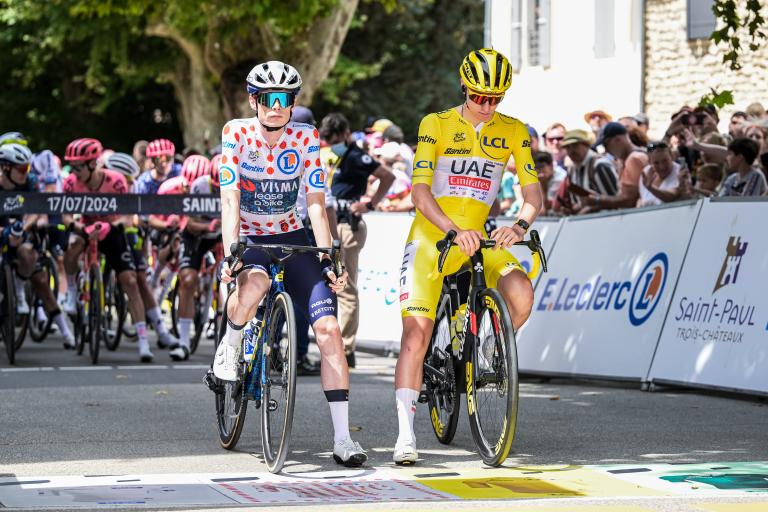
Should the UCI implement a budget cap in the men’s World Tour?
We’ve heard from Tour de France head honcho Christian Prudhomme, now it’s over to you – is a salary cap, and with it the probable end of the ‘super team’ era, the way forward for cycling?
Of course, we’ve been here before, back in 2019, when a certain Bradley Wiggins wasn’t entirely convinced…
> Sir Bradley Wiggins rejects talk of salary cap
10:23
“This is not a ban on cycling”: Birmingham City Council hits back at criticism of PSPO plans, insisting they will stop the “use of illegally modified e-bikes” and those “cycling with disregard to other people”
After obtaining a PhD, lecturing, and hosting a history podcast at Queen’s University Belfast, Ryan joined road.cc in December 2021 and since then has kept the site’s readers and listeners informed and enthralled (well at least occasionally) on news, the live blog, and the road.cc Podcast. After boarding a wrong bus at the world championships and ruining a good pair of jeans at the cyclocross, he now serves as road.cc’s senior news writer. Before his foray into cycling journalism, he wallowed in the equally pitiless world of academia, where he wrote a book about Victorian politics and droned on about cycling and bikes to classes of bored students (while taking every chance he could get to talk about cycling in print or on the radio). He can be found riding his bike very slowly around the narrow, scenic country lanes of Co. Down.
Latest Comments
- slc 1 min 2 sec ago
Plus, it takes just one bright spark with a drill to turn water-filled barriers back to the easily moved state.
- eburtthebike 6 min 49 sec ago
Birmingham City Council "We're encouraging cycling." Birmingham City Council "We're banning cycling." How do they keep a straight face?
- chrisonabike 7 min 38 sec ago
Well the threat of theoretically * "losing your licence" - even for a short period - is to many "cruel and unusual punishment". Akin to e.g....
- Steve K 15 min 9 sec ago
Gosh, I thought I was a late comer to this
- thax1 1 hour 27 min ago
I managed to break the chain link on mine. (I assume it's the same product, mine came as part of a rather snazzy Birzman toolkit)....
- thax1 1 hour 31 min ago
Good review. I like to see the full range of 'award stars' in use to differentiate between good and 'meh' products. Same with the Ribble Allroad...
- brooksby 1 hour 38 min ago
I was under the impression that “unbalanced investment from Arab countries” is having a not necessarily good impact on pretty much every sport.
- brooksby 1 hour 46 min ago
Very true....
- brooksby 1 hour 50 min ago
Like going to a cello lesson?
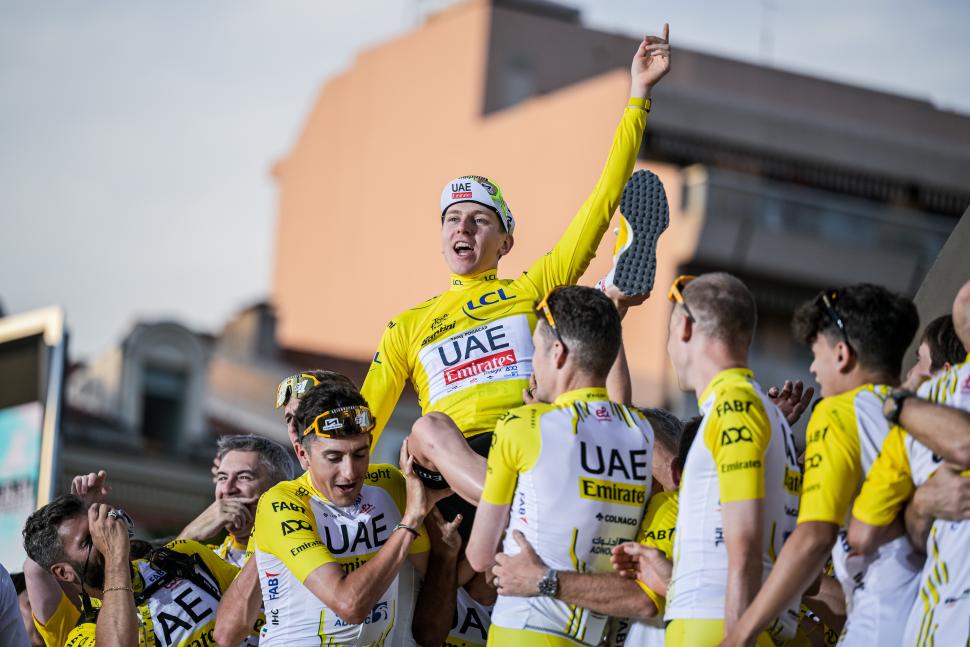
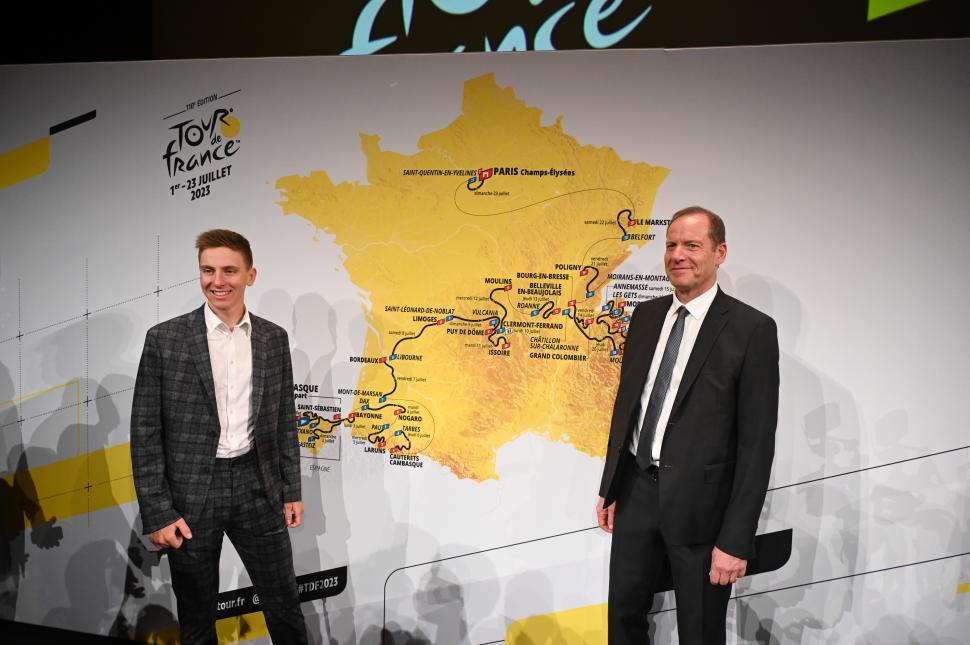
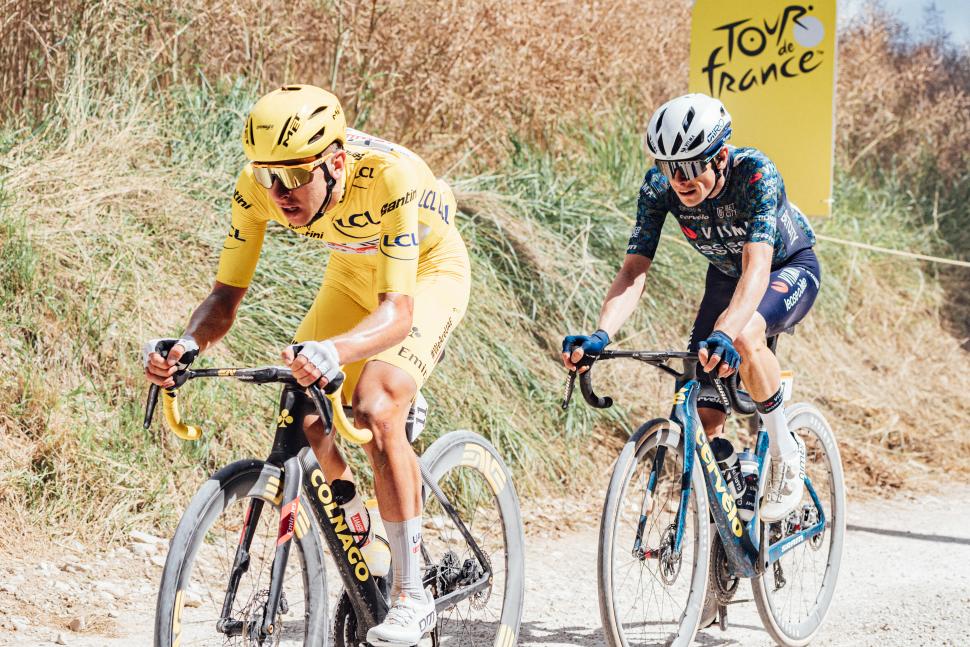
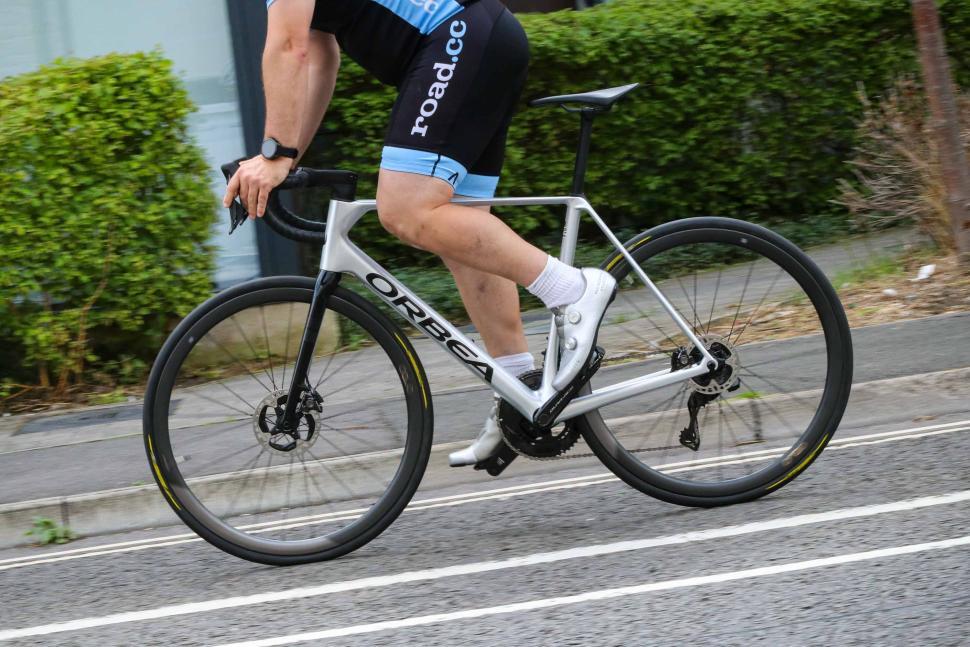

Add new comment
1 comments
I was under the impression that “unbalanced investment from Arab countries” is having a not necessarily good impact on pretty much every sport.